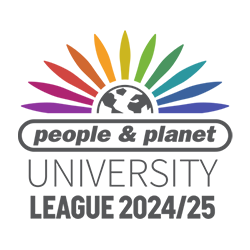-
Study
-
Undergraduate
- Search for a Course
- Undergraduate Open Day & Events
- Application Guides
- Northumbria University UCAS Exhibitions
- Foundation Years
- Undergraduate Fees & Funding
- School & College Outreach
- Continuing Professional Development
-
Postgraduate
- Postgraduate Study Degree
- Postgraduate Research Degrees
- Postgraduate Open Days and Events
- Postgraduate Fees & Funding
- Flexible Learning
- Thinking about a Masters?
- Continuing Professional Development
- Change Direction
-
Student Life
- The Hub - Student Blog
- Accommodation
- Life in Newcastle
- Support for Students
- Careers
- Information for Parents
- Students' Union
- Northumbria Sport
- Be Part of It
-
-
International
International
Northumbria’s global footprint touches every continent across the world, through our global partnerships across 17 institutions in 10 countries, to our 277,000 strong alumni community and 150 recruitment partners – we prepare our students for the challenges of tomorrow. Discover more about how to join Northumbria’s global family or our partnerships.
View our Global Footprint-
Applying to Northumbria
- European Union
- Our London Campus
- Northumbria Pathway
- International Events
- Entry Requirements and Country Representatives
- Global Offices
-
Northumbria Language Centre
- Faculty Requirements
- Acceptable English Requirements
- Pre-sessional English Language and Study Skills
- Academic Language Skills Programmes (ALS)
-
International Fees, Funding & Scholarships
- International Undergraduate Fees
- International Undergraduate Funding
- International Masters Fees
- International Masters Funding
- International Postgraduate Research Fees
- International Postgraduate Research Funding
- International Money Matters
-
Life at Northumbria
- International student support
- Careers
-
International Mobility
- Current Northumbria Students
- Incoming Exchange Students
-
-
Business
Business
The world is changing faster than ever before. The future is there to be won by organisations who find ways to turn today's possibilities into tomorrows competitive edge. In a connected world, collaboration can be the key to success.
More on our Business Services -
Research
Research
Northumbria is a research-rich, business-focused, professional university with a global reputation for academic quality. We conduct ground-breaking research that is responsive to the science & technology, health & well being, economic and social and arts & cultural needs for the communities
Discover more about our Research -
About Us
-
About Northumbria
- Our Strategy
- Our Staff
- Place and Partnerships
- Student Profiles
- Alumni Profiles
- Leadership & Governance
- Academic Departments
- University Services
- History of Northumbria
- Contact us
- Online Shop
-
-
Alumni
Alumni
Northumbria University is renowned for the calibre of its business-ready graduates. Our alumni network has over 246,000 graduates based in 178 countries worldwide in a range of sectors, our alumni are making a real impact on the world.
Our Alumni - Work For Us
What will I learn on this module?
This research rich module will enable you to bring together the knowledge, understanding and skills that you have accrued from other modules on your programme. Prior to the undertaking this module, you will have completed the appropriate level of study that prepares you for engagement with a Masters dissertation process. The module provides you with a vehicle for developing, refining and applying your research skills in an independent project.
You will identify a topic with which you are familiar, and which you believe has scope for development or change that will be the focus of your independent study. You can chose one of two methods to structure your dissertation.
- Systematic Review :A structured analysis of evidence
- Empirical research: Based on primary data analysis or secondary sources
In the module, you will revisit and deepen your understandings of a range of key topic areas linked to the research process within your chosen method. This may include discussion of worldviews and research paradigms, research design, working with literature and theory, developing ethical codes, collecting robust research evidence, ensuring quality assurance within your research work, and writing and disseminating the research dissertation work.
There will be a series of research seminars during the module and you will have access to a named supervisor for one to one supervision work. Both the seminars and supervision will enable you to critically examine how the research process will work best for your dissertation goals and design.
How will I learn on this module?
You will participate in this module as an active learner as there is a strong emphasis upon your own independent study. The module is built around a number of individual and group learning activities that will help you to explore the different aspects of undertaking your project. You will work with a named supervisor for the duration of your research project. This will involve you in 12 hours of one to one contact with this individual. The supervision work that you undertake will focus on your independent project and should follow the path of the study as it unfolds. This one to one support will enable you to explore areas of the work that are troublesome and the critical dialogue that it enables will help you to develop your understanding of the theoretical, methodological and practical aspects of your study process. In addition to supervision work, a series of seminars are provided within each of the chosen methods. During each seminar, individuals will share their project’s challenges and successes. The sharing of understandings and experiences will be an integral part of the way in which the module helps to socially construct individual’s perceptions of their work. Step-by-step dissertation writing and content guidelines, specific method support materials, the module handbook, electronic reading list and turnitin software will be available on the E Learning Portal to assist with your learning journey.
How will I be supported academically on this module?
You will be supported through a series of group seminars relating to the specific method chosen for your independent study and individual supervision tutorials. These will provide opportunities for feedback on the development of your dissertation. The module team have a wide range of expertise to aid your learning and you will be allocated a supervisor. Supervisors help and support your learning, and will use a variety of approaches to help you conceptualise, focus, plan and implement your ideas, proposals, and plans. The module leader can be contacted to offer module guidance when necessary.
Formative assessment will offer the opportunity for critical feedback from peers and from academic staff, which can feed forward into the development of your final dissertation. You will also get verbal feedback and email communication on progress at and after individual supervision sessions. Seminars will provide you with opportunities to monitor your progress and to enable you to share your ideas within your peer group. You will also be encouraged to form collegiate team groups with peers outside of formal scheduled teaching, where issues and topics can be discussed together. The E learning portal is used to support you by providing a range of learning materials and resources including study guides, electronic reading lists and other web based sources. The University Library offers an extensive collection of material, both hard copy and electronic, access to international databases in addition to study space and IT equipment. Study skills help can be found on the Library’s Skills Plus site on the university library website.
What will I be expected to read on this module?
All modules at Northumbria include a range of reading materials that students are expected to engage with. Online reading lists (provided after enrolment) give you access to your reading material for your modules. The Library works in partnership with your module tutors to ensure you have access to the material that you need.
What will I be expected to achieve?
Knowledge & Understanding:
1. Conceptualise a project topic and established its relevance to your practice area/field of expertise and define a project in terms of one of the two methods; systematic review or empirical research.
Intellectual / Professional skills & abilities:
2. Carry out an extended literature review to support and develop the project.
3. Depending upon the method chosen you will have developed and implemented a small-scale empirical study to explore a research question; systematically appraised evidence based published studies in order to answer your research questions(s).
4. Report the outcomes of the study in a written final dissertation report written in a journal submission format.
5. Prepare and deliver a critical oral presentation on the process of completing your research project.
Personal Values Attributes (Global / Cultural awareness, Ethics, Curiosity) (PVA):
6. Critically appraise your own project writing skills development, identifying your ongoing learning needs.
How will I be assessed?
Formative:
Your knowledge and understanding, learning needs, and academic progress on the module will be monitored by the completion of a formative task (a written plan of your dissertation project). You will receive feedback from your dissertation supervisor on your plan. Additional formative feedback will come from the sharing of project work during seminar discussions.
(Covers all MLOs.)
Summative:
The summative assessment will consist of two parts:
Part 1) An 8000-word final dissertation report written in a journal submission format. 80% of the total mark for the module.
Part 2) An oral presentation which should critically reflect on the process of completing your research project. The presentation should critically discuss your data collection and data analysis process and any project challenges and successes. 20% of the total mark for the module. (Covers all MLOs)
Pre-requisite(s)
Progression with 120 programme credits
Co-requisite(s)
None
Module abstract
This module focuses on you as an independent researcher and learner. It provides an opportunity to undertake an independent study on a project of your choice both in terms of the topic area and the methods used. There are two approaches you can choose from, a systematic review or an empirical project. You will be supported in the module by a named supervisor and through the provision of a series of research seminars.
The summative assessment will consist of two parts:
1) An 8000-word final dissertation report written in a journal submission format. 80% of the total mark for the module.
2) An oral presentation which should critically reflect on the process of completing your research project. The presentation should critically discuss your data collection and data analysis process and any project challenges and successes. 20% of the total mark for the module.
This module will uphold the ethos of adult education, you will be encouraged to operate in a collegial and collaborative manner and to share and deepen your research based understandings through critical dialogue with your supervisor and module peer group.
Course info
Credits 60
Level of Study Postgraduate
Mode of Study 16 months Full Time
2 other options available
Department Social Work, Education and Community Wellbeing
Location City Campus, Northumbria University
City Newcastle
Start January 2025
All information is accurate at the time of sharing.
Full time Courses are primarily delivered via on-campus face to face learning but could include elements of online learning. Most courses run as planned and as promoted on our website and via our marketing materials, but if there are any substantial changes (as determined by the Competition and Markets Authority) to a course or there is the potential that course may be withdrawn, we will notify all affected applicants as soon as possible with advice and guidance regarding their options. It is also important to be aware that optional modules listed on course pages may be subject to change depending on uptake numbers each year.
Contact time is subject to increase or decrease in line with possible restrictions imposed by the government or the University in the interest of maintaining the health and safety and wellbeing of students, staff, and visitors if this is deemed necessary in future.
Useful Links
Find out about our distinctive approach at
www.northumbria.ac.uk/exp
Admissions Terms and Conditions
northumbria.ac.uk/terms
Fees and Funding
northumbria.ac.uk/fees
Admissions Policy
northumbria.ac.uk/adpolicy
Admissions Complaints Policy
northumbria.ac.uk/complaints













